During March and April 1861, after seven states had seceded and formed the Confederate States of America but before war broke out, Confederate Secretary of State Robert Toombs appointed Martin J. Crawford, John Forsyth, and A.B. Roman as Commissioners of the Confederate States to Washington, DC. Their purpose was to seek diplomatic recognition from the United States and negotiate peace—at least for a while. Central to the question of peace or war was whether the United States would continue to retain claim over federal forts located in the southern states that had seceded, including Fort Pickens in Florida and Fort Sumter in South Carolina. This item is transcribed from a letter book maintained by J.T. Pickett, secretary to the commissioners, containing copies of 72 letters, dispatches, and telegrams sent and received by the commissioners from the time of their appointment to the demand for the evacuation of Fort Sumter.
Transcript (redacted):
No 1.
Department of State
Montgomery March 14th, 1861.
Hons Martin J Crawford &
John Forsyth
Commissioners of the Confederate States
&c. &c. &c.
Gentlemen,
[…] On some of the points to which you refer, I think it very important to give you additional information and instruction in regard to the views of this Government.
1. In reference to the proposed postponement, for a period not exceeding twenty days, of the consideration by the Government of the United States of the subjects on which you are commissioned to treat with that Government, it is the opinion of the President that, while to accord such a delay under all the circumstances, and in view of present facts and events in South Carolina, is of extremely doubtful policy, and not unlikely to lead to embarrassing complications; still, so earnest is his desire to obtain a peaceful settlement of all matters in dispute between the Confederate States and the United States, he will consent, in the interest of peace, to the proposed delay, on the terms set forth in your memorandum. He is however, decidedly averse to any extension of the term of twenty days from the date of your despatch, except in case of extreme necessity, and unless negotiations are actually pending. […]
2. […] I deem it necessary to inform you that while you are authorized to acquiesce in a proposition to refer the questions on which you are commissioned to negotiate, to the United States Senate now in session, or to the United States Congress hereafter to assemble, you are instructed not to agree to either proposition unless some definitive arrangement is made for the evacuation of the strong places now occupied by the forces of the United State within the borders of the Confederate States.
The evacuation by the United States of Fort Sumter, you are to insist on as a sine qua non. While the United States maintain a force at this fort, obstructing the entrance to one of our principal harbors, and rendering it necessary for this Government to keep a large military establishment at Charleston, it is utterly idle to talk of peace negotiations.
You will also demand pertinaciously, until otherwise instructed, the withdrawal of the United States troops and vessels of war from Fort Pickens and the waters near Pensacola. […]
3. In your despatch of the 6th inst. you make reference to the respective tariffs of the two countries, and express the apprehension that the United States Government may “insist, pending negotiations, that the Confederate States shall levy and collect the same duties which are required by the law of the United States.”
The Government of the Confederates States can never agree that negotiations shall be made dependent on the nonexecution of our own laws. If we had the power, (which we have not,) we have not the will to adopt a course which would be so clearly illegal and impolitic. Not even to avert war can we ever consent to suspend the operation of the laws which we are bound to execute.
4. During the arrangement of the preliminaries of negotiation—that is, during the twenty days delay which you propose to grant to the Government of the United States, the President sees no objection to the garrison at Fort Sumter obtaining, in limited quantities, and at short intervals, such supplies as are “needful for the comfort of the officers and men.” The manner in which those supplies should be obtained, their amount, and nature, would, of course, be regulated by the proper authorities of the Confederate States at Charleston.
Mr A.B. Roman, your co-commissioner will proceed to Washington tomorrow morning, and will convey to you this despatch. Your despatches to this Department have been communicated to him. I have no doubt that his experience and prudent council in consultation with you will be valuable to you and to the public service.
I remain, Gentlemen,
Very respectfully yours
Wm M Browne
For Mr Toombs
Citation:Commissioners of the Confederate States of America to the Government of the United States, letter book.Washington, D.C., Feb 27-April 11, 1861.AMS 811/20
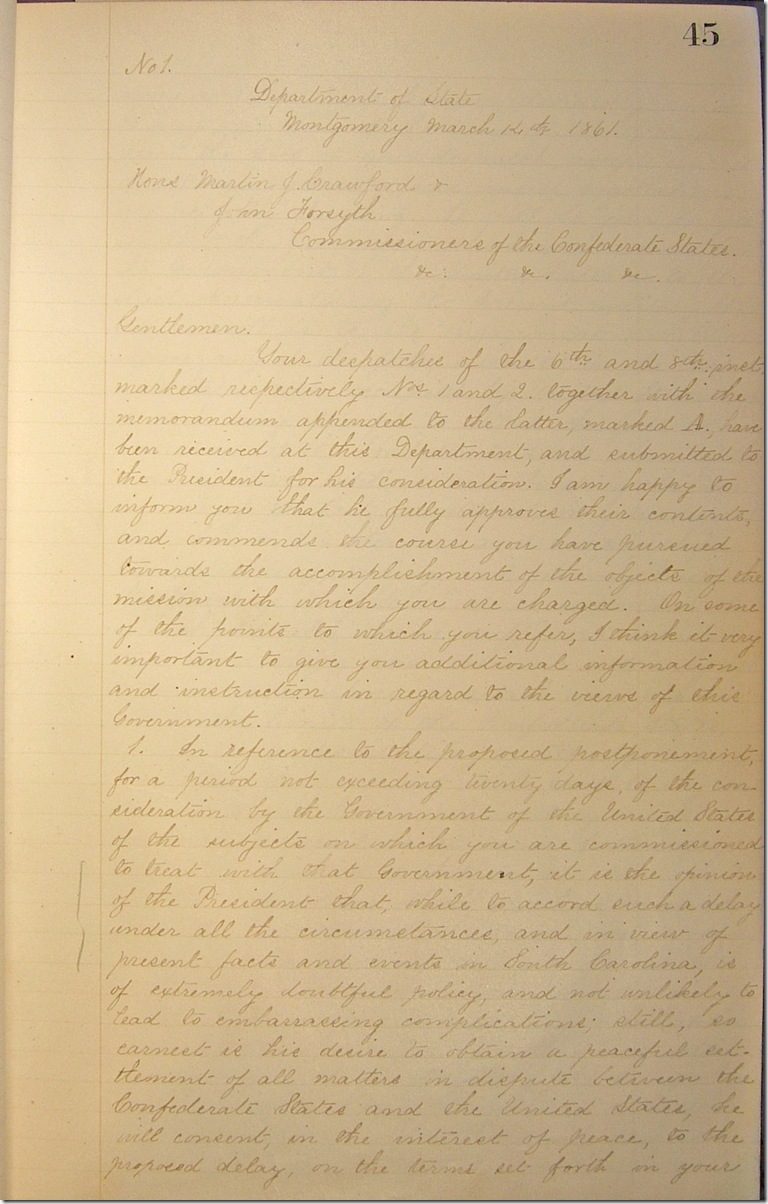
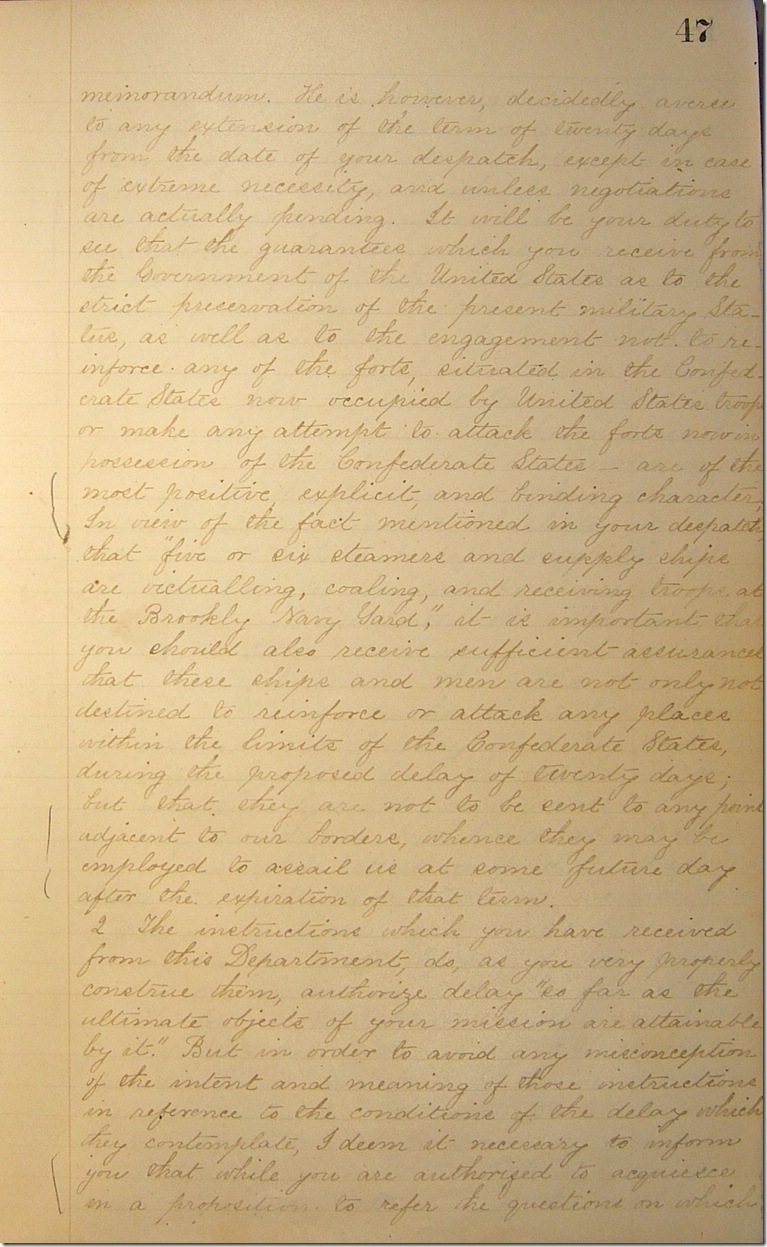
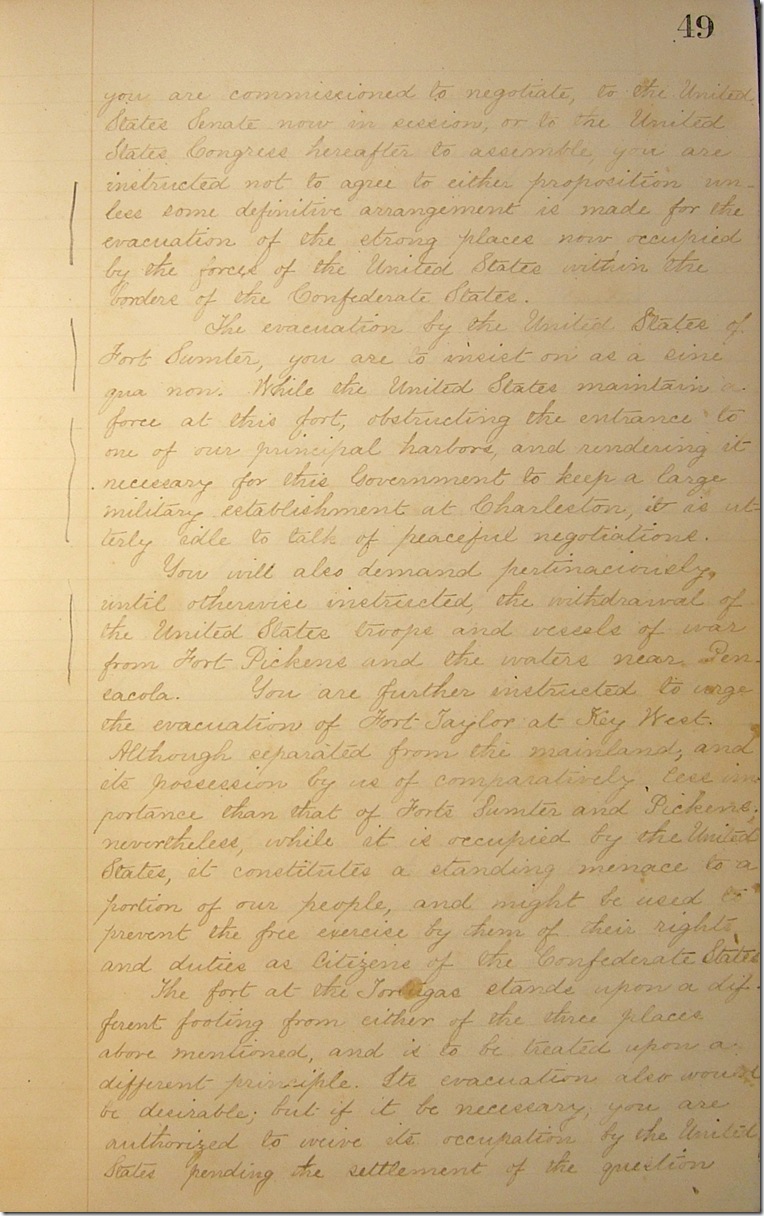
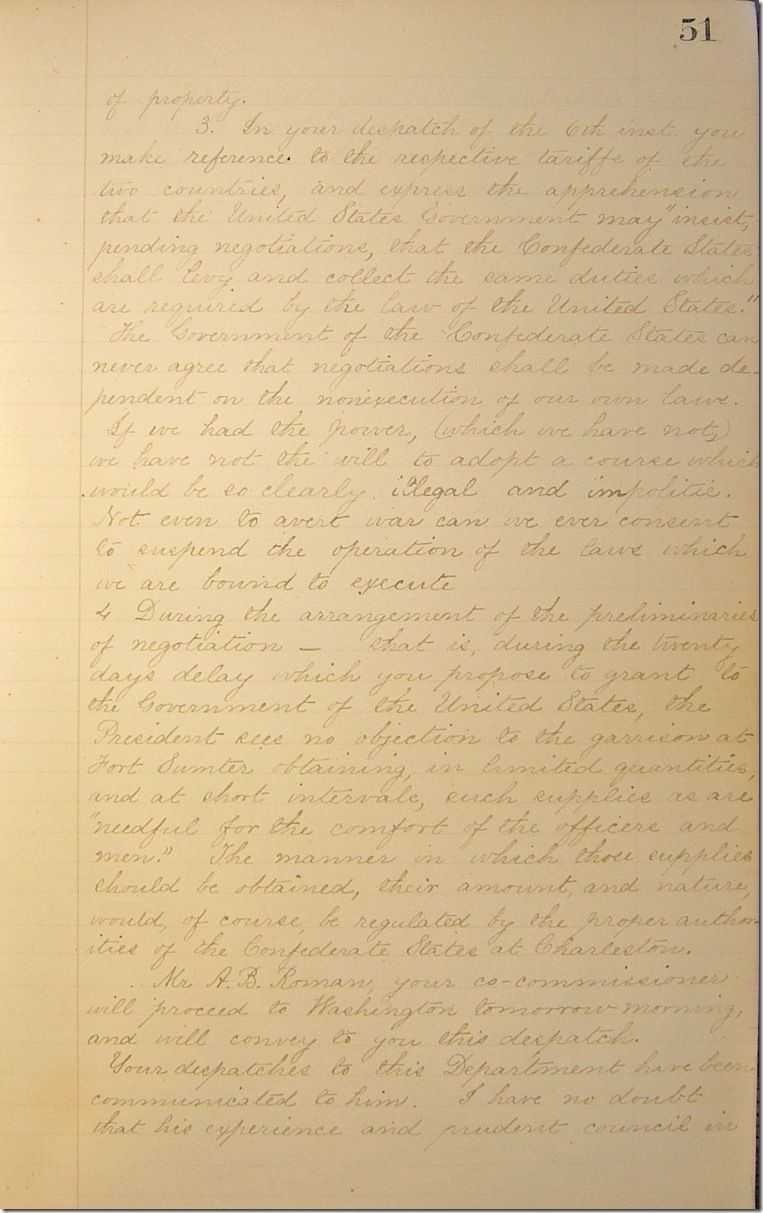
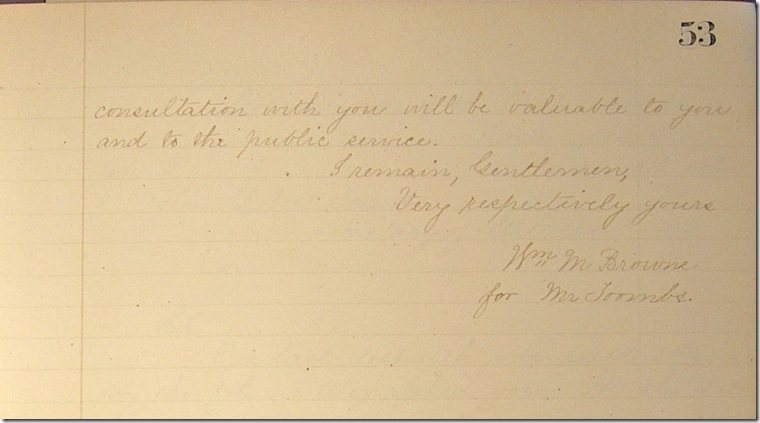
Louisiana turns over $536,000 to the Confederate government taken from the US Mint in New Orleans.